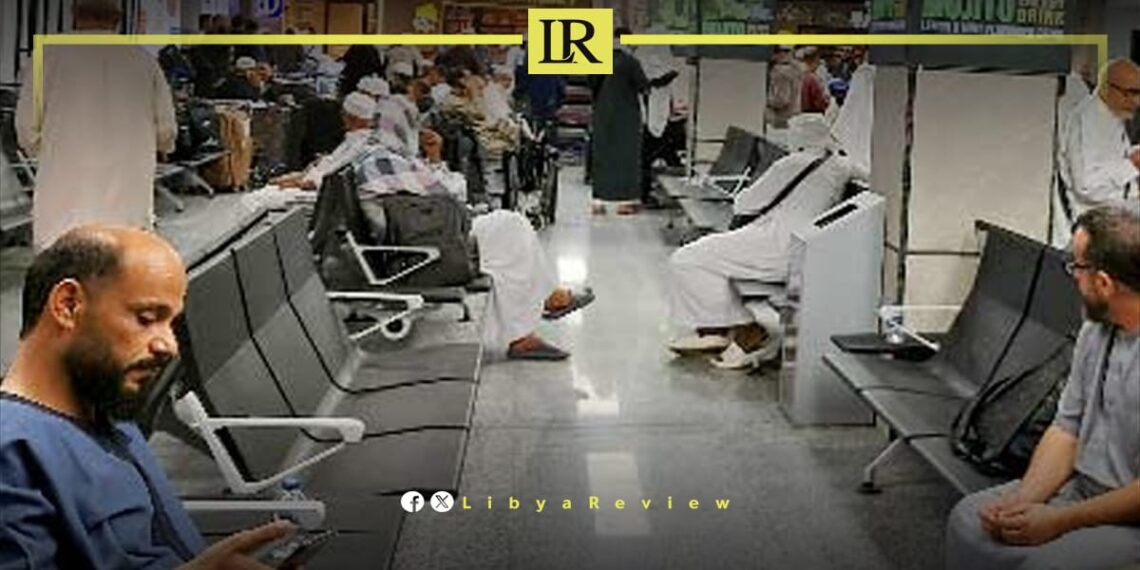Tripoli’s Mitiga International Airport has confirmed the departure of the eighth group of Libyan pilgrims to Jeddah, Saudi Arabia, as part of this year’s Hajj pilgrimage.
According to the airport administration, the pilgrims began arriving in the early hours of Tuesday morning, with airport staff and the Hajj season committee coordinating closely to ensure smooth travel procedures. Special assistance was provided to facilitate check-ins and guarantee the comfort of all pilgrims prior to their flight to the Holy Lands.
The General Authority for Hajj and Umrah Affairs announced that the eighteenth group of pilgrims—consisting of individuals from Ajdabiya and Benghazi—has safely arrived in Mecca. The authority shared photos showing the arrival of Libyan pilgrims in Saudi Arabia.
Preparations for Libyan pilgrims’ accommodation at Mount Arafat are also underway. On Saturday, the Hajj Authority confirmed that the final setup of the pilgrim camps has been completed. The camps are described as high-standard, air-conditioned sleeping areas with organised spaces for rest between tents, medical clinics, rapid-response vehicles for emergencies, and sanitary facilities—all aimed at ensuring a safe and comfortable pilgrimage experience.
Libya is sending pilgrims from all regions of the country through a series of coordinated group departures managed by the Hajj and Umrah Authority in cooperation with local airports and agencies.
Libya has been in chaos since a NATO-backed uprising toppled longtime leader Muammar Gaddafi in 2011. The county has for years been split between rival administrations.
Libya’s economy, heavily reliant on oil, has suffered due to the ongoing conflict. The instability has led to fluctuations in oil production and prices, impacting the global oil market and Libya’s economy.
The conflict has led to a significant humanitarian crisis in Libya, with thousands of people killed, and many more displaced. Migrants and refugees using Libya as a transit point to Europe have also faced dire conditions.
The planned elections for December 2021 were delayed due to disagreements over election laws and the eligibility of certain candidates. This delay has raised concerns about the feasibility of a peaceful political transition.
Despite the ceasefire, security remains a significant concern with sporadic fighting and the presence of mercenaries and foreign fighters. The unification of the military and the removal of foreign forces are crucial challenges.


